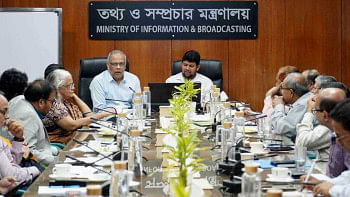Crisis in emergency care

It is unacceptable that people suffering from various health issues were deprived of necessary treatment or had to endure long delays due to a shortage of doctors and nurses at hospitals around the country during the Eid-ul-Fitr holidays. As in previous years, major public hospitals were mostly operated by non-Muslim doctors and nurses. However, the number of patients in the emergency departments at Dhaka Medical College Hospital (DMCH) and Pongu Hospital increased significantly during the holidays, causing immense suffering for those in need of urgent care.
A man named Riyad Hossain, who was allegedly beaten by a mob, died due to a lack of timely treatment caused by this shortage. Reportedly, police first took him to Kurmitola General Hospital, which refused to admit him and instead referred him to DMCH. However, the country's largest hospital also did not admit him. He was given some medication and the police were informed that his condition was stable. When Riyad's condition deteriorated, police took him to a nearby private hospital, but he was denied admission due to the unavailability of doctors. With no alternatives, police had to keep him at the station. As his condition worsened, they took him back to Kurmitola General Hospital, but the hospital once again refused to admit him. Ultimately, he succumbed to his injuries at the hospital's emergency department—an avoidable tragedy.
A correspondent from this daily, upon visiting various hospitals, found that most were severely understaffed. At Pongu Hospital, a long list of patients waited at the emergency department, with only one doctor available to treat them. If an emergency department is so understaffed and struggling to cope, one can only imagine the plight of non-emergency patients. At DMCH, an average of 1,680 people visited the emergency department last week—higher than the usual 1,300-1,400 daily visits under normal circumstances, according to DMCH sources. The surge in emergency visits during Eid was attributed to many district, upazila-level, and private hospitals either remaining closed or providing minimal services.
This clearly indicates a severe lack of planning at all levels before the Eid holidays. As a result, granting leave to too many doctors and hospital staff at the same time led to immense suffering for patients.
To prevent such crises in the future, hospitals should implement a rotational duty system for medical workers during major holidays, recognising that healthcare is an essential service. Additionally, district and upazila-level hospitals should establish contingency plans, including incentives for medical staff to work during holidays. Private hospitals must also be required to keep emergency services operational. Without these measures, the healthcare system will continue to fail those in need, particularly during national holidays.


 For all latest news, follow The Daily Star's Google News channel.
For all latest news, follow The Daily Star's Google News channel. 




Comments